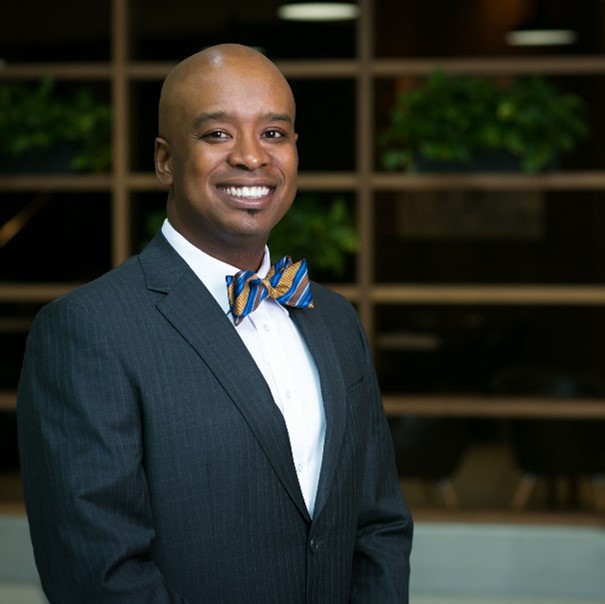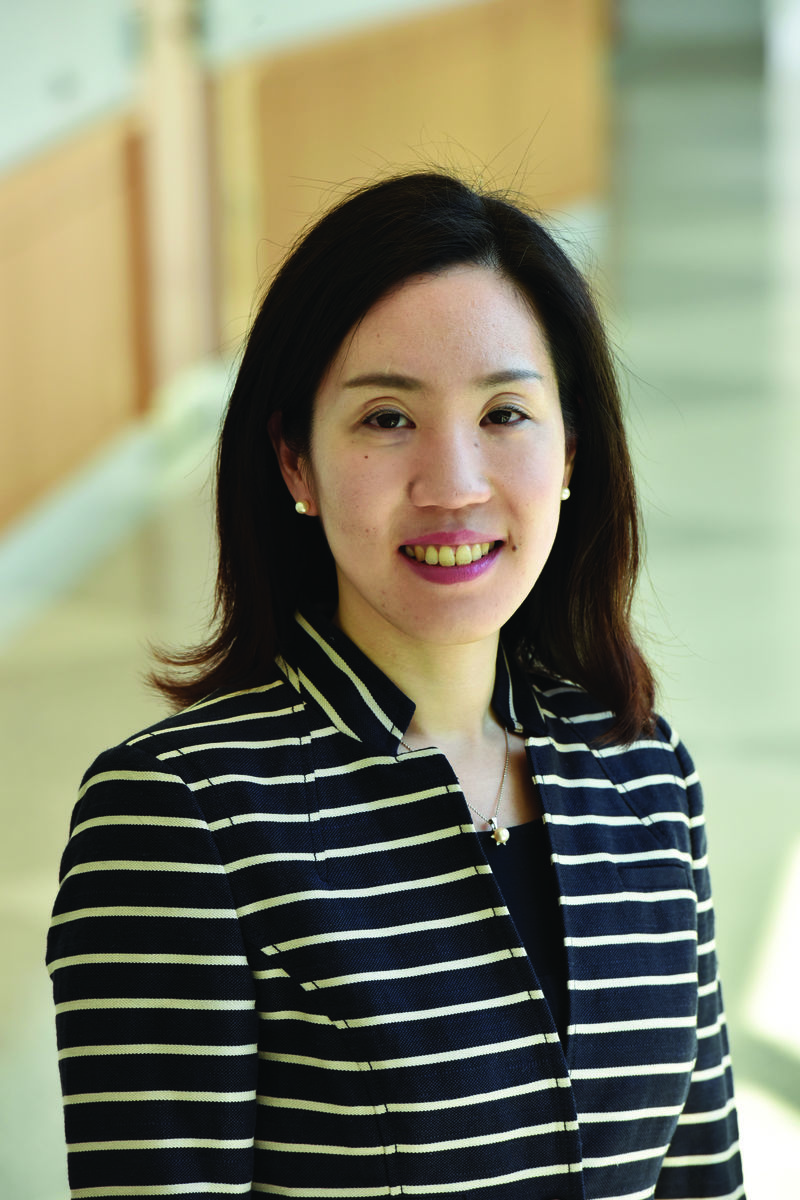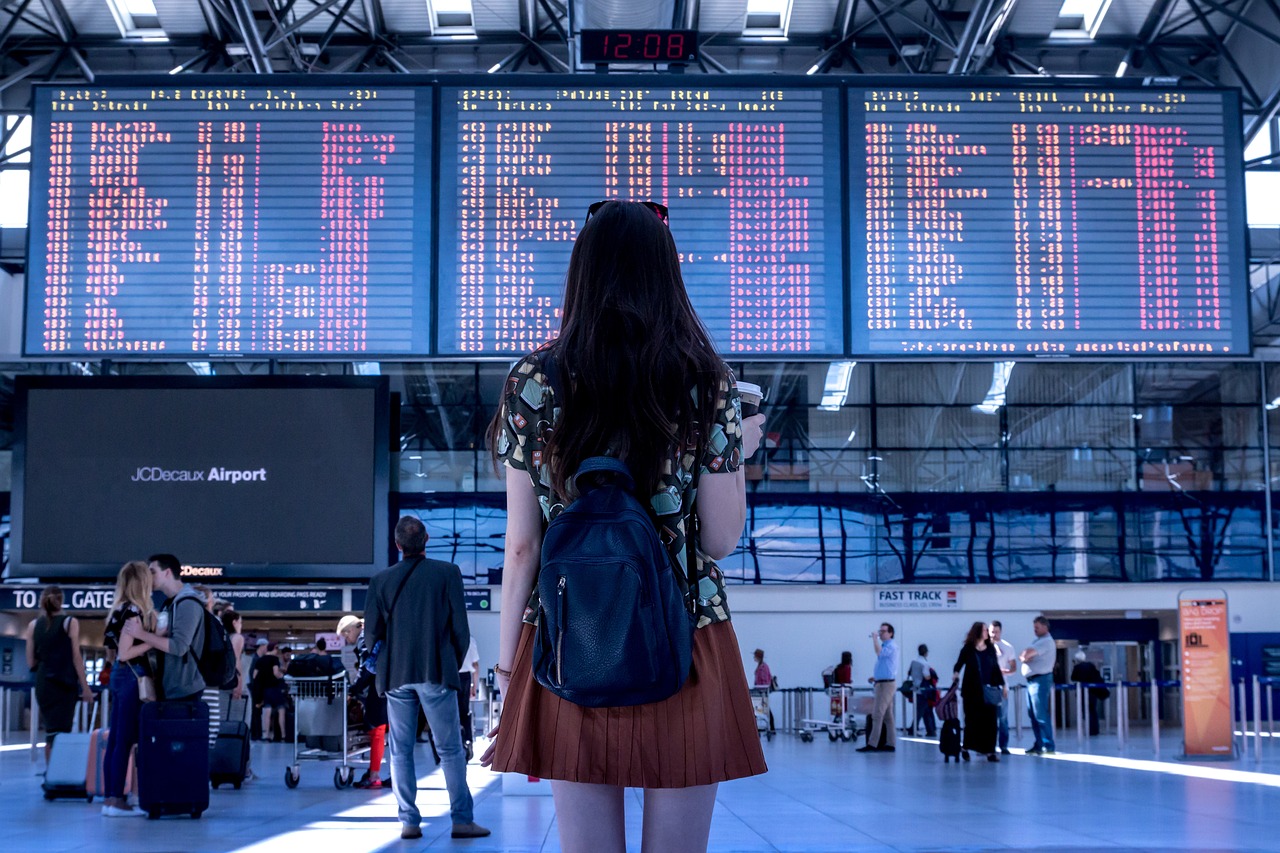Research IRL (In Real Life) is an ongoing series from the Fox School of Business. In a Q&A style format, researchers and members of the business community, including alumni and corporate partners, come together to discuss the intersection of research and its real-world implications.
The Fox Focus editorial team asked Professor Jennifer Tae and Steve Mayers, BS '00, to discuss an industry that has seen a significant amount of adjusting and refining in recent years: air travel.
Mayers is the chief experience officer at the Hartsfield-Jackson Atlanta International Airport (ATL). He leads ATL's operations, customer relationships and inclusivity programs.
Tae, assistant professor of management at the Fox School, studies how companies can shape and respond to competitive conditions such as operational disruptions, among others.
Tae: My research focuses on how companies can shape or respond to competitive conditions and changes. Obviously, with the pandemic, we’ve had quite a bit of change! In your role as Chief Experience Officer at the ATL airport, what changes have you seen? What’s been the most significant or impactful?

Mayers: First, we need to understand how complicated airports are. A commercial service airport is owned by a city or municipality and it receives funds from the federal government. Then there are private entities, leases for gates, for retail food and beverage, rental car centers or parking.
What I've noticed more than ever is that airports and airlines are finally on the same page regarding who the customer belongs to. Now, especially since COVID-19, we have had to reinvent how we take care of customers because, without them, we do not exist.
So we focus on partnering more on with an airline. How can we assist you to succeed? Here's what we see. Do you see the same thing? Can we share data? I really focus on the customer and the customer's journey through our airport, and how we can best serve them and drive revenue. The change now is operating together to ensure that we serve a common customer.
Tae: We see a lot of news articles and horror stories about air travel being shared on social media on a daily basis. How are you alleviating some of the frustrations and disruptions that the passengers are experiencing?
Mayers: This is a testament to the education that I got at Temple. As a leader in this space, I go all over the world to let folks know that at the Hartsfield-Jackson Atlanta International Airport, from curbside to gate and back, we are determined to have the same level of service for everyone. We collect data on the complaints that we receive, so we can discern who is responsible for what.
Then we can say to the customer, we're going to do everything in our power to make sure that you get the satisfaction you need. This is also an opportunity for us to help you resolve some of these historical complaints, where everyone is having the same challenge. It's about proper planning and understanding what the issues are that will help you to resolve issues in the future. So gathering that data, analyzing it, coming up with solutions, reversing it—this should all be part of your regular operations, your daily briefings.
Tae: What I'm hearing from you is a lot of things can be anticipated with the right kind of data, and if the airport is prepared enough, there are ways to mitigate disruptions and discomfort.
Yet so much change requires constant adjustment in order to stay relevant or sustainable. What are the ways that you’re reinventing or refining your approach in a way that will maintain ATL's status as a major hub?

Mayers: At ATL, we move more passengers than any other airport in the world. We are also the world's most efficient airport—and it's just in the way that our airport is designed.
Now, what effect does that have on passengers? Yes, we get you more efficiently to your plane, in the air and to your destination. So if we're making it more efficient for our passengers, we need to have a diversity of thought as to what needs to happen. We develop these personas on how to serve different types of customers as they are going through our airports. For example, whether you have a disability; how does a blind person navigate an airport? Do you have a right as a person who has your own wheelchair, who's not being assisted by anyone to go through any lane?
Tae: And that inclusivity can have repercussions in situations like emergency planning.
Mayers: Exactly. It's taking care of every persona. If there is a fire in one part of the building, how do you get an individual who's in a wheelchair down a jet bridge? What's your accessible route? There's this constant refining of our emergency scenarios. So, it's not like airports are blindly following a standard operating procedure that's been established like forty years ago. It seems like our manual is constantly evolving, changing and adapting. That makes me feel better as a passenger.
Tae: What else are airports doing to refine your service offerings? What advice do you have for other leaders?
Mayers: We are continually reinventing ourselves. It's not just enough—especially for American airports—to say that we have safety and security. We're now trying to make sure that the employee experience and the customer experience are parallel.
If you are a leader in your space, I ask you to journey map your employee experience and ensure that it is parallel to the customer experience. That means, if you have employees within your organization that you are aware are spending 25% on their paycheck public transportation, ask yourself if there is anything that you can do about that? Because then you realize that they may not be able to afford the product that you are providing. From an airport perspective, we're the leaders in making sure that we have equal access to our facilities. I'm proud to be a part of an entity that is doing just that.
Tae: Thank you. I think that's something that really resonates with a lot of people. Especially nowadays, a lot of the service sector cannot find people to work. And even if someone gets hired, they don't stick around because of this overemphasis on customers. But employees are human beings, too. So you’re right, leaders should pay attention to whether the people who are working for their organizations are being well served.

